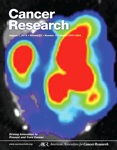- EN - English
- CN - 中文
Generation of Mouse iNKT Cell Lines
建立小鼠的iNKT细胞系
发布: 2013年03月20日第3卷第6期 DOI: 10.21769/BioProtoc.419 浏览次数: 15453
Abstract
Natural killer T (NKT) cells bridge the innate and adaptive arms of the immune system, and manipulating their effector functions can have therapeutic significances in the treatment of autoimmunity, transplant biology, infectious disease and cancer. This important lymphocyte subset regulates the immune system through their potent cytokine production following the recognition of lipid antigen present in the context of the MHC class I-like CD1d molecule, in addition their ability to directly mediate cytotoxicity. Here, we describe a method of expanding mouse invariant NKT (iNKT) cell lines from mononuclear cells isolated from the thymus, spleen, or liver using bone marrow derived dendritic cells. These iNKT cell lines can be used study their co-signaling requirements, cytokine profiles and cytotoxic functions which will greatly enhance our knowledge of iNKT cell biology.
Materials and Reagents
- 6-12 weeks old C57BL/6 or BALB/c mice
- Erythrocyte lysis buffer- ACK Lysing buffer (Life Technologies, Gibco®, catalog number: A10492-01 )
- PBS-no calcium, no magnesium, 1x & 10x (Life Technologies, Gibco®, catalog number: 14190 )
- FITC-anti-CD3 (BD Biosciences, catalog number: clone 2C11; 553061 )
- APC-conjugated CD1d tetramer loaded with PBS-57 lipid antigen (National Institutes of Health Tetramer Core Facility, Atlanta, GA)
- PE-anti-NK1.1 (BD Biosciences, catalog number: clone PK136; 561046 )
- Recombinant mouse GM-CSF (R&D systems, catalog number: 415-GM )
- Recombinant mouse IL-4 (R&D systems, catalog number: 404-IL )
- Recombinant mouse IL-2 (Peprotech, catalog number: 212-12 )
- Recombinant mouse IL-7 (Peprotech, catalog number: 217-17 )
- Mouse Pan T cell isolation kit (MiltenyiBiotec, catalog number: 130-095-130 )
- Anti-APC microbeads (MiltenyiBiotec, catalog number: 130-090-855 )
- α-galactosylceramide (α-GalCer, KRN7000) (Enzo Life Sciences, catalog number: BML-SL232 )
- Lympholyte-M (Accurate Chemical)
- Percoll (Amersham-Pharmacia Biotech, catalog number: 17-0891-01 )
- RPMI-1640 medium (Life Technologies, Gibco®, catalog number: 11875 )
- Non-essential vitamin solution (Life Technologies, Gibco®, catalog number: 11140-050 )
- MEM Vitamin solution (Life Technologies, Gibco®, catalog number: 11120-052 )
- Sodium Pyruvate (Life Technologies, Gibco®, catalog number: 11360-070 )
- 2-mercaptoethanol (Life Technologies, Gibco®, catalog number: 21985-023 )
- Anti-CD16/32 antibody (Biolegend, catalog number: 101320 )
- Antibiotics: Penicillin-streptomycin
- Heat inactivated fetal bovine serum
- FBS
- EDTA
- Complete medium (see Recipes)
- MACS Buffer (see Recipes)
- Liver MNC isolation (see Recipes)
- Cell buffer solution (see Recipes)
Equipment
- 70 μm nylon mesh cell strainer (BD Bioscience, Falcon®, catalog number: 352350 )
- Centrifuge with swing out rotor and capable of 300-700 x g
- BD LSR II flow cytometer (BD Biosciences)
- Gamma irradiator
- 0.22 μm filter
Procedure
文章信息
版权信息
© 2013 The Authors; exclusive licensee Bio-protocol LLC.
如何引用
Li, X., Tsuji, M., Schneck, J. and Webb, T. J. (2013). Generation of Mouse iNKT Cell Lines. Bio-protocol 3(6): e419. DOI: 10.21769/BioProtoc.419.
分类
免疫学 > 免疫细胞分离 > 淋巴细胞
细胞生物学 > 细胞分离和培养 > 细胞分离
免疫学 > 免疫细胞分离 > 维持和分化
您对这篇实验方法有问题吗?
在此处发布您的问题,我们将邀请本文作者来回答。同时,我们会将您的问题发布到Bio-protocol Exchange,以便寻求社区成员的帮助。
Share
Bluesky
X
Copy link

















